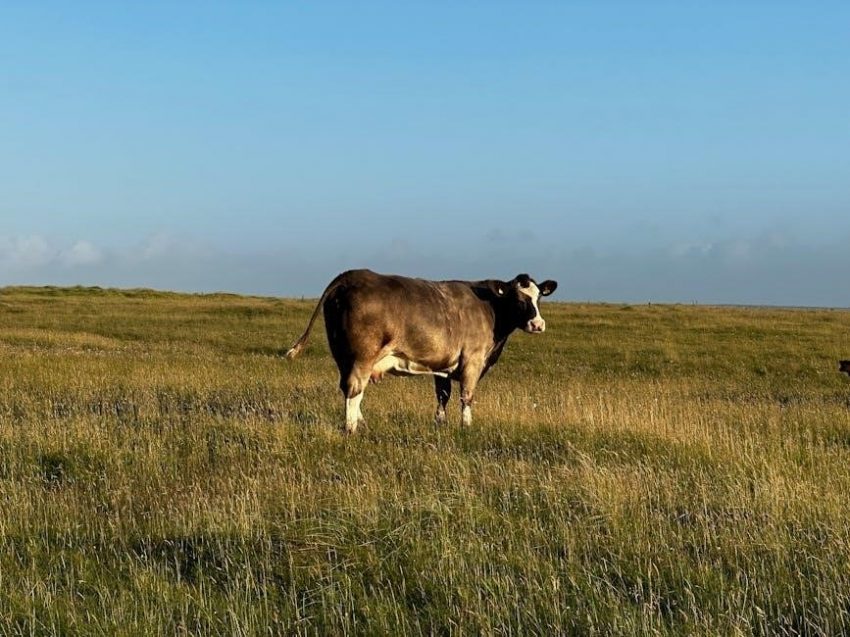Animal Farm, a novella by George Orwell, tells the story of farm animals rebelling against their oppressive owner, exploring themes of power, corruption, and societal ideals through an allegorical lens․
1․1 Background and Context of the Novel
Animal Farm, written by George Orwell in 1945, is an allegorical novella reflecting the events of the Russian Revolution and the rise of Stalinism․ Set on Manor Farm, the story depicts animals rebelling against their oppressive owner, Mr․ Jones, symbolizing the overthrow of the Russian monarchy․ The novel critiques totalitarianism, highlighting how power corrupts even those with idealistic beginnings․ Orwell’s fable serves as a cautionary tale about the dangers of authoritarian rule and the erosion of revolutionary ideals, resonating with post-World War II political tensions and remaining a timeless commentary on human nature and governance․
1․2 Importance of the Allegorical Theme
The allegorical theme in Animal Farm is crucial as it allows Orwell to critique political systems, particularly Stalinism, through a veiled narrative․ By masking historical events with animal characters, the novel conveys complex ideas about power, corruption, and the betrayal of ideals․ This approach makes the story universally relatable, enabling readers to grasp profound political truths through a simple, yet powerful, fable․ The allegory ensures the novel’s enduring relevance, offering insights into human nature and the cyclical nature of oppression and rebellion across societies and eras․
1․3 Overview of the Main Characters
The main characters in Animal Farm include Old Major, the wise boar whose speech inspires rebellion; Napoleon and Snowball, the pigs who lead the uprising but later clash for power; Boxer, the hardworking horse symbolizing loyalty; Squealer, the manipulative pig who spreads propaganda; Benjamin, the skeptical donkey representing cynicism; Clover, the caring mare who supports her fellow animals; and Mr․ Jones, the oppressive farmer ousted by the animals․ These characters embody distinct traits and roles, driving the narrative and illustrating Orwell’s commentary on power dynamics and societal structures․
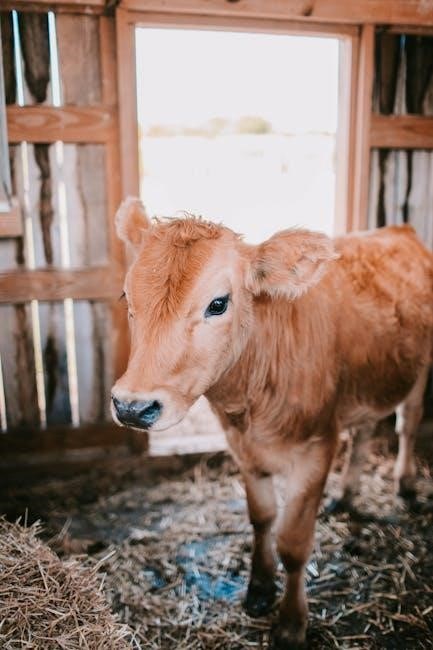
Plot Summary of Animal Farm
Animal Farm recount the animals’ rebellion against Mr․ Jones, their struggle for equality, and the pigs’ rise to power, leading to corruption and the farm’s eventual downfall․
2․1 Chapter 1: The Meeting in the Barn
In Chapter 1 of Animal Farm, Old Major, a wise boar, convenes a meeting in the barn, inspiring the animals with his vision of a rebellion against Mr․ Jones․ He speaks of a utopian future where animals rule themselves, free from human oppression․ The pigs, led by Napoleon and Snowball, emerge as leaders, while other animals like Boxer and Clover show enthusiasm․ Benjamin remains skeptical, and Mollie focuses on her vanity․ The chapter sets the stage for the rebellion, highlighting the animals’ shared desire for freedom and equality, which will drive the events of the novel․
2․2 Chapter 2: The Rebellion and Aftermath
In Chapter 2 of Animal Farm, the animals, fueled by their desire for freedom, rise up against Mr․ Jones, who is too drunk to secure the farm․ The pigs, led by Snowball and Napoleon, take charge, and the animals collectively expel Mr․ Jones․ The farm is renamed “Animal Farm,” symbolizing their newfound independence․ The animals, filled with hope, work together to establish their new society, setting the stage for the events that will unfold․
2․3 Chapter 3: The Formation of the Seven Commandments
In Chapter 3 of Animal Farm, the animals gather to discuss the principles of their new society․ Snowball and Napoleon, the pigs, paint the Seven Commandments on the barn wall, distilling Old Major’s teachings into simple, universal rules․ These commandments, such as “Whatever goes upon two legs is an enemy” and “All Animals are Equal,” aim to unite the animals and prevent exploitation․ The pigs emphasize education and collective effort, while the other animals, inspired by the commandments, commit to upholding their new ideals, symbolizing their shared vision of equality and freedom․
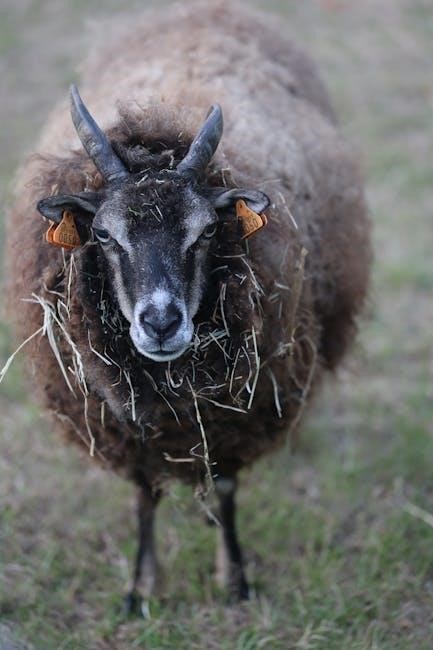
2․4 Chapter 4: The Battle of the Cowshed
Chapter 4 of Animal Farm recounts the dramatic Battle of the Cowshed, where the animals defend their farm against Mr․ Jones and his men․ The attack occurs when Jones, determined to reclaim his property, leads a violent charge․ The animals, united under Snowball’s strategic leadership, bravely repel the invasion․ Napoleon and Snowball prove crucial, with Snowball leading a daring charge that routs the humans․ The victory strengthens the animals’ resolve and solidifies their belief in their revolutionary ideals․ This pivotal battle highlights the animals’ courage and unity, marking a turning point in their struggle for independence and self-governance․
2․5 Chapter 5: The Struggle for Power Between Napoleon and Snowball
Chapter 5 of Animal Farm delves into the intensifying rivalry between Napoleon and Snowball, as they clash over leadership and the farm’s future․ Their ideological differences become evident, with Snowball advocating for industrial progress and trade, while Napoleon prioritizes self-sufficiency․ Meetings grow tense, and their debates escalate․ The power struggle mirrors real-world political conflicts, showcasing how ambition and greed can undermine collective goals․ This chapter sets the stage for Napoleon’s eventual dominance and the manipulation of the farm’s principles, highlighting the dangers of unchecked power and corruption within revolutionary movements․
2․6 Chapter 6: The Expulsion of Snowball and the Rise of Napoleon
In Chapter 6 of Animal Farm, the power struggle between Napoleon and Snowball reaches its climax․ During a heated debate over the windmill, Napoleon summons his privately trained dogs, who chase Snowball off the farm․ Napoleon seizes control, declaring himself the sole leader and rewriting history to justify Snowball’s expulsion․ The animals, intimidated by the dogs, accept Napoleon’s rule․ This chapter marks the beginning of Napoleon’s dictatorship, as he manipulates the Seven Commandments to consolidate power, signaling the end of the farm’s democratic ideals and the rise of a totalitarian regime․
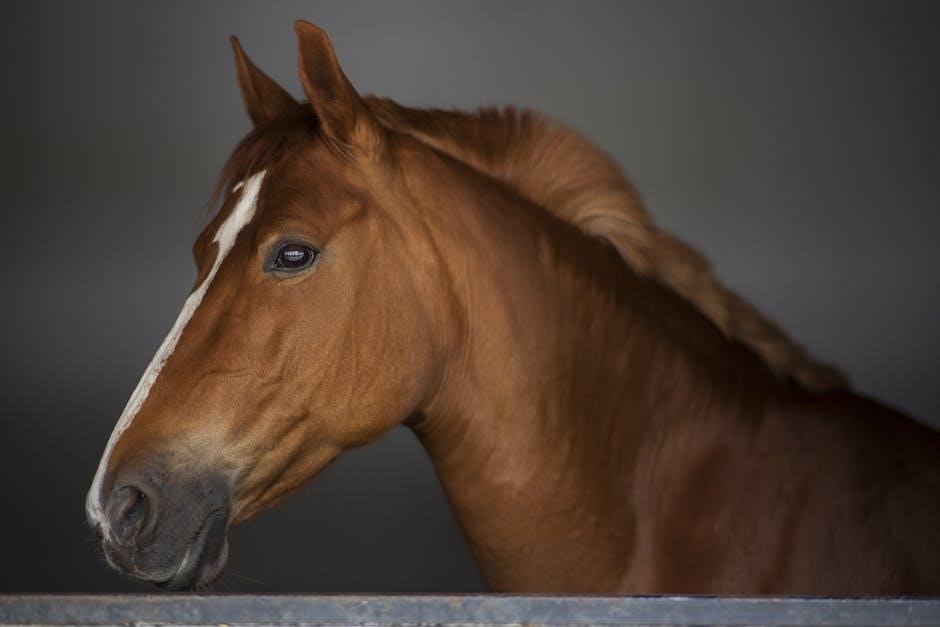
2․7 Chapter 7: The Battle of the Windmill
In Chapter 7 of Animal Farm, the animals defend their windmill against a devastating attack by neighboring farmers, who seek to destroy their progress․ Despite their bravery, the windmill is demolished․ Napoleon blames Snowball for the destruction, falsely claiming he orchestrated the attack․ The animals, exhausted and disheartened, rebuild the windmill under Napoleon’s strict leadership․ Boxer, the loyal workhorse, suffers a severe injury but continues working, embodying the farm’s spirit of resilience․ This chapter highlights Napoleon’s manipulation of events to consolidate power and the animals’ growing distrust of his leadership․
2․8 Chapter 8: The Corruption and Decline of the Farm
In Chapter 8 of Animal Farm, the farm’s conditions deteriorate as Napoleon’s corruption intensifies․ The pigs exploit the animals’ labor, altering the Seven Commandments to justify their actions․ Boxer, overworked and weakened, collapses but is sent to a glue factory under false pretenses, shocking the animals․ Napoleon’s regime becomes indistinguishable from Mr․ Jones’, with the pigs enjoying luxuries while others suffer․ This chapter underscores the tragic decline of the farm’s ideals and the animals’ realization of their betrayal, as the revolution’s principles are completely eroded by greed and authoritarianism․
2․9 Chapter 9: The Final Betrayal and the End of the Rebellion
In Chapter 9, the pigs completely abandon the revolution’s ideals, openly embracing the very practices they initially rebelled against․ They walk on two legs and carry whips, indistinguishable from humans․ The Seven Commandments are reduced to a single phrase: “All Animals Are Equal / But Some Animals Are More Equal Than Others․” The animals, realizing their betrayal, are left disillusioned and powerless․ The rebellion ends as the pigs solidify their totalitarian rule, mirroring the oppressive regime they once overthrew․ This chapter marks the tragic conclusion of the animals’ struggle for freedom and equality․

2․10 Chapter 10: The Animals’ Realization of Their Mistake
In Chapter 10, the animals confront the harsh reality of their failed rebellion; They realize that the pigs have manipulated and exploited them, eroding the original principles of equality and freedom․ The farm, now indistinguishable from neighboring farms, reflects the animals’ defeat․ The pigs’ dominance is absolute, and the animals are left with a sense of betrayal and hopelessness․ The novel concludes with the animals’ tragic understanding that their struggle for a better life has ended in a cycle of oppression, leaving them as powerless as they were under Mr․ Jones․
Main Characters in Animal Farm
Napoleon, Snowball, Boxer, Squealer, Old Major, Benjamin, Clover, and Mr․ Jones are the main characters, each embodying distinct traits that drive the story’s themes and conflicts․
3․1 Napoleon: The Power-Hungry Leader
Napoleon, a cunning and manipulative pig, rises to power after Old Major’s death․ He, along with Snowball, leads the rebellion but later expels Snowball to consolidate control․ Napoleon uses propaganda, fear, and his loyal dogs to maintain authority, twisting the Seven Commandments for his benefit․ His corruption mirrors Stalin’s rise in the Russian Revolution, showcasing how power corrupts even idealistic leaders․ Napoleon’s rule marks the decline of Animal Farm’s ideals, highlighting Orwell’s critique of totalitarianism and the dangers of unchecked power․
3․2 Snowball: The Idealistic Revolutionary
Snowball, a charismatic and intelligent pig, emerges as a key leader in the early stages of the rebellion․ He is passionate about creating a better future for the animals and devises plans like the windmill to improve their lives․ However, his idealism clashes with Napoleon’s authoritarian ambitions, leading to his violent expulsion․ Snowball’s character represents the ideals of revolution and the dangers of power struggles, mirroring historical figures like Leon Trotsky․ His absence leaves the farm vulnerable to corruption, symbolizing the loss of original revolutionary ideals․
3․3 Boxer: The Loyal and Hardworking Horse
Boxer, a strong and dedicated horse, is the embodiment of loyalty and work ethic on Animal Farm․ His unwavering commitment to the farm’s success is driven by his belief in the rebellion’s ideals․ Boxer’s famous maxim, “I will work harder,” reflects his selfless dedication․ Despite his physical strength, he is naive and trusting, often exploited by the pigs․ His eventual collapse and tragic fate serve as a poignant critique of exploitation and the erosion of trust in leadership, highlighting the consequences of blind loyalty to corrupt authority․ Boxer’s story evokes both admiration and sorrow, underscoring Orwell’s warning about the dangers of unchecked power․ His character remains a symbol of integrity and resilience in the face of oppression․
3․4 Squealer: The Propagandist
Squealer, a clever and manipulative pig, serves as Napoleon’s propagandist, distorting reality to justify the pigs’ actions․ His intelligence and silver tongue allow him to twist the Seven Commandments, convincing the animals of the morality of Napoleon’s decisions․ Squealer’s role is crucial in maintaining the pigs’ power, as he skillfully manipulates information to align with their interests․ His ability to rewrite history and bend truth exemplifies the dangers of propaganda in controlling public perception․ Through Squealer, Orwell critiques how those in power often use deception to maintain their authority, undermining the ideals of equality and justice․
3․5 Old Major: The Inspirational Figure
Old Major, a wise and aged boar, serves as the inspiration for the rebellion․ He convenes a meeting where he delivers a powerful speech about the animals’ miserable conditions and their shared dream of a better future․ His vision of a utopian society, free from human oppression, sparks hope among the animals․ Old Major’s death shortly after the meeting solidifies his legacy as a symbol of rebellion and equality․ His ideas, though later manipulated by the pigs, remain the foundation of the animals’ struggle for freedom and justice, making him a pivotal figure in the story’s narrative․
3․6 Benjamin: The Skeptical Donkey
Benjamin, the donkey, is a wise and skeptical character who remains indifferent to the political turmoil on Animal Farm․ He is known for his cynicism and refusal to believe in the ideals of the rebellion․ Despite his intelligence and awareness of the pigs’ corruption, Benjamin chooses to remain neutral and focuses on his own survival․ His skepticism often serves as a voice of reason, questioning the motives of those in power․ Benjamin’s quiet resilience and independence make him a unique and memorable figure in the story, highlighting themes of disillusionment and pragmatism․
3․7 Clover: The Compassionate Mare
Clover, a kind and gentle mare, is one of the most compassionate animals on the farm․ She is deeply concerned about the welfare of others, often taking on a nurturing role, especially towards Boxer․ Clover’s loyalty and empathy make her a beloved figure among the animals․ Despite the challenges and corruption that arise, she remains committed to the original ideals of the rebellion․ Her willingness to help others and her quiet strength highlight her moral integrity, making her a symbol of hope and resilience in the face of adversity on Animal Farm․
3․8 Mr․ Jones: The Oppressive Farmer
Mr․ Jones, the owner of Manor Farm, is portrayed as a neglectful and oppressive figure․ His consistent drunkenness and failure to maintain the farm lead to the animals’ suffering․ Jones’s disregard for their welfare sparks the rebellion, as the animals seek liberation from his exploitative rule․ After the animals expel him, Jones attempts to regain control but is defeated in the Battle of the Cowshed․ His character represents the corrupt and inefficient leadership that the animals initially rebel against, embodying the oppressive systems that Orwell critiques through the allegory of Animal Farm․

Themes and Symbolism in Animal Farm
Animal Farm explores themes of totalitarianism, power corruption, and the dangers of unchecked authority, symbolized through the pigs’ rise and the alteration of the Seven Commandments․
4․1 The Dangers of Totalitarianism
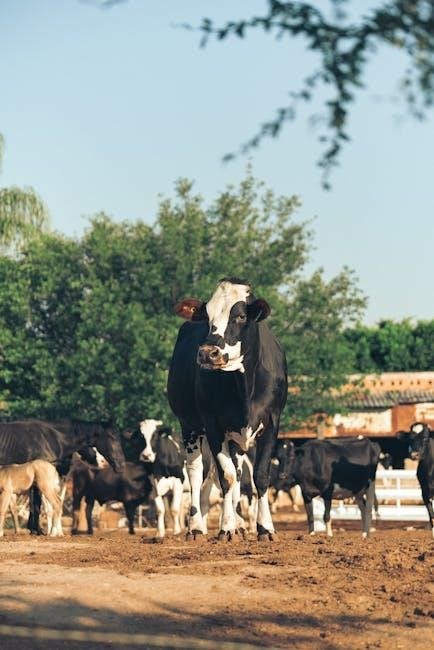
Totalitarianism is vividly depicted in Animal Farm through Napoleon’s regime, illustrating how absolute power corrupts and enslaves․ The pigs, initially idealistic, gradually mirror the oppressive tactics of humans, exploiting fear and propaganda to maintain control․ This reflects Orwell’s critique of Stalin’s Soviet Union, where authority suppresses dissent and manipulates truth․ The pigs’ manipulation of the Seven Commandments exemplifies how totalitarian regimes distort ideals to justify tyranny, highlighting the dangers of unchecked power and the erosion of freedom․ The novel serves as a timeless warning against authoritarianism and its destructive consequences․
4․2 The Corruption of Power
The corruption of power is a central theme in Animal Farm, as the pigs, initially united for equality, gradually abuse their authority․ Napoleon, driven by ambition, manipulates the farm’s governance, using fear and propaganda to maintain control․ The pigs justify their privileges by distorting the Seven Commandments, exemplifying how power corrupts even those with noble intentions․ Squealer’s role in rewriting history highlights the dangers of unchecked power and the erosion of truth․ Orwell’s portrayal of the pigs’ moral decay serves as a cautionary tale about the corrupting influence of authority and the vulnerability of ideals to exploitation․
4․3 The Importance of Education and Knowledge
The importance of education and knowledge in Animal Farm is underscored by the pigs’ manipulation of literacy to control the other animals․ Napoleon and Snowball, who learn to read and write, use this skill to alter the Seven Commandments and justify their actions․ The illiteracy of the other animals makes them vulnerable to deception, highlighting how education empowers individuals to question authority․ Orwell emphasizes that without knowledge, the animals cannot challenge the pigs’ corruption, illustrating the crucial role of education in preventing exploitation and maintaining freedom․ This theme serves as a warning about the dangers of ignorance and misinformation․
4․4 The Role of Propaganda
In Animal Farm, propaganda plays a pivotal role in manipulating the animals’ perceptions․ Squealer, the pigs’ propagandist, distorts facts and rewrites history to justify the pigs’ actions, ensuring compliance and maintaining their power․ Propaganda is used to glorify Napoleon’s leadership, suppress dissent, and justify the pigs’ increasing corruption․ Orwell highlights how propaganda can be a powerful tool for controlling minds, particularly when coupled with fear and misinformation․ This theme underscores the dangers of manipulation and the importance of critical thinking in resisting oppressive regimes․ The novel serves as a stark reminder of propaganda’s influence in shaping public opinion and suppressing truth․
4․5 The Symbolism of the Seven Commandments
The Seven Commandments in Animal Farm symbolize the animals’ shared ideals of equality and freedom after their rebellion․ Painted on the barn wall, they serve as a unifying moral code, initially representing the animals’ commitment to fairness and justice․ However, as the pigs’ power grows, the commandments are repeatedly altered to justify their corruption․ This manipulation highlights how symbols of unity can be distorted to maintain control and justify injustice․ The commandments’ gradual erosion reflects the decline of the animals’ original ideals, underscoring the novel’s critique of how power corrupts even the noblest principles․ Their alteration symbolizes the betrayal of the revolution’s core values․
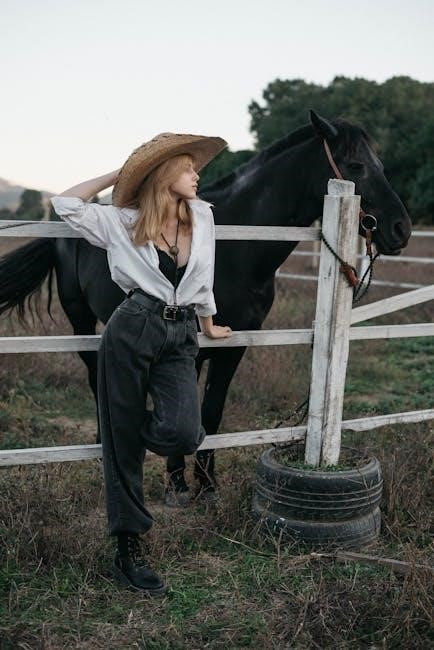
4․6 The Representation of the Russian Revolution
Animal Farm serves as a powerful allegory for the Russian Revolution, with the animals representing key figures and events․ The rebellion mirrors the overthrow of Tsar Nicholas II, while Napoleon and Snowball symbolize Stalin and Trotsky, respectively․ The pigs’ gradual corruption and consolidation of power reflect Stalin’s rise and the betrayal of revolutionary ideals․ The Battle of the Cowshed parallels the Russian Civil War, and Napoleon’s rule embodies Stalin’s totalitarian regime․ Orwell critiques how revolutionary movements can be hijacked by power-hungry leaders, leading to oppression and the erosion of initial ideals, mirroring the Soviet Union’s tragic trajectory under Stalin’s rule․
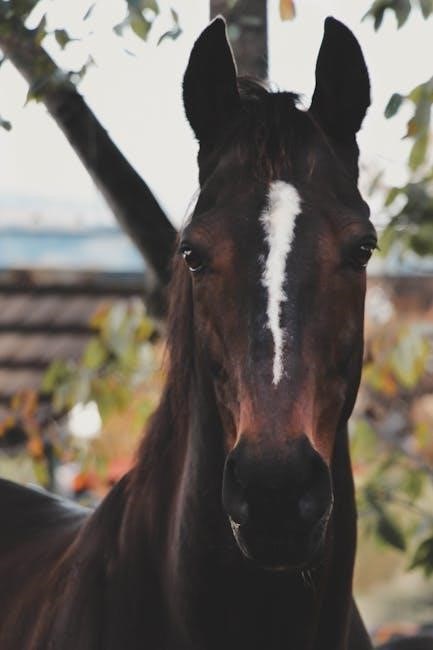
Critical Analysis and Reception
Animal Farm received critical acclaim for its biting political satire, sparking debates on totalitarianism and power corruption․ Its controversial themes fueled global discussions on socialism and capitalism․
5․1 Critical Acclaim and Controversy
Animal Farm garnered widespread critical acclaim for its sharp political satire and thought-provoking themes․ Critics praised Orwell’s ability to convey complex ideas through a simple fable․ However, the novella also sparked controversy, particularly for its critique of Stalinism, which led to bans in Soviet-aligned countries․ Its exploration of totalitarianism and the corruption of power resonated globally, fueling debates about socialism and capitalism․ Despite initial mixed reactions, the book solidified Orwell’s legacy as a master of dystopian literature, leaving a lasting impact on political discourse and literary analysis․
5․2 Public Reception and Impact
Animal Farm resonated deeply with the public, sparking widespread discussion about its allegorical themes․ The novella’s clear yet profound critique of totalitarianism made it accessible to a broad audience․ Its release in 1945 coincided with post-war tensions, amplifying its relevance․ The book became a classroom staple, with its PDF versions and summaries widely downloaded for educational purposes․ It not only influenced literary circles but also shaped political discourse, fostering debates about socialism, capitalism, and the dangers of authoritarianism․ Orwell’s fable continues to inspire reflections on power dynamics and societal structures, cementing its enduring impact on global culture․
5․3 Literary Significance and Legacy
Animal Farm is widely regarded as a literary masterpiece, celebrated for its profound allegorical depiction of historical events․ Its timeless themes of power, corruption, and the erosion of ideals have cemented its place in 20th-century literature․ The novella’s concise yet impactful narrative has made it a staple in educational curricula worldwide․ Orwell’s ability to convey complex political ideologies through a fable has inspired countless adaptations, including films, stage plays, and PDF summaries․ Its enduring relevance ensures that Animal Farm remains a vital work, continuing to provoke thought on authoritarianism and societal change․
Resources for Further Study
Downloadable PDFs of the book, study guides, and analytical essays provide deeper insights into themes and characters, aiding comprehensive understanding of the novella․
6․1 Downloadable PDF Versions of the Book
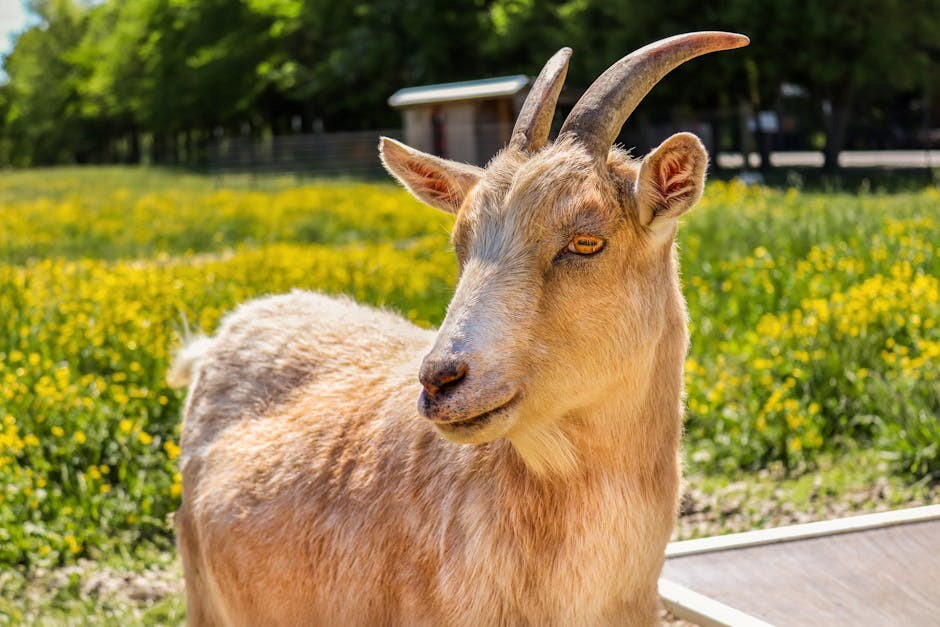
Animal Farm is widely available in downloadable PDF formats, offering convenient access for readers․ These versions can be found on various platforms, including Google Workspace and Faunalytics, allowing for easy offline reading and study․ The PDFs often include the full text of the novel, making them ideal for in-depth analysis․ Additionally, some platforms provide complementary study guides and summaries to enhance understanding of the book’s themes and characters․ Downloading the PDF ensures that readers can access the content anytime, making it a practical choice for both academic and personal use․
6․2 Study Guides and Chapter Summaries
Study guides and chapter summaries for Animal Farm are invaluable resources for deeper understanding․ These materials provide detailed analyses of each chapter, highlighting key themes, characters, and plot developments․ Available in downloadable PDF formats, they often include discussion questions and insights into Orwell’s allegorical themes․ Platforms like Faunalytics and educational websites offer free access to these guides, making them accessible for students and readers․ These resources enhance comprehension of the novel’s complex symbolism and historical context, ensuring a richer reading experience and supporting academic exploration of the text․
6․3 Analytical Essays and Research Papers
Analytical essays and research papers on Animal Farm offer in-depth exploration of Orwell’s themes, characters, and historical context․ These resources, available as downloadable PDFs, provide scholarly insights into the novel’s allegorical significance, particularly its reflection of the Russian Revolution․ Essays examine themes like totalitarianism, power corruption, and the erosion of ideals․ They also analyze key characters such as Napoleon, Snowball, and Boxer, shedding light on their roles in the narrative․ These academic works are invaluable for students and scholars, enhancing understanding of Orwell’s critique of political systems and societal structures through the lens of Animal Farm․
